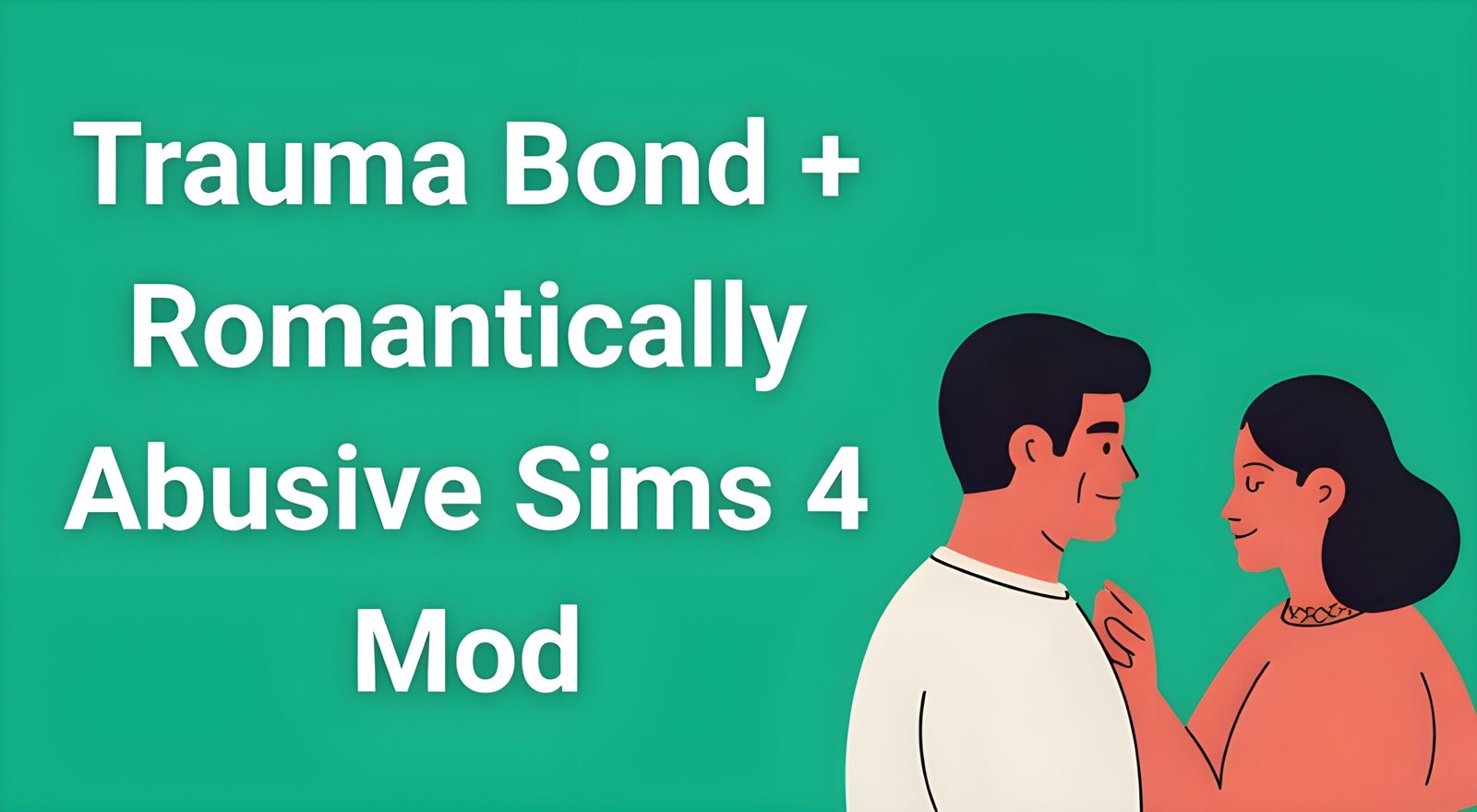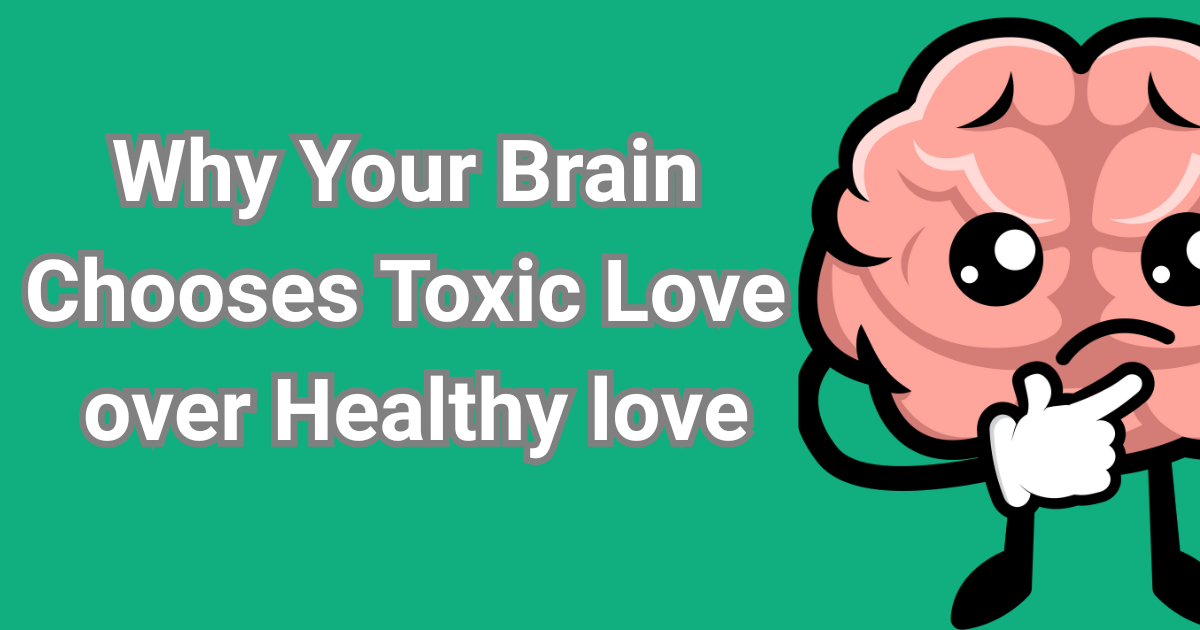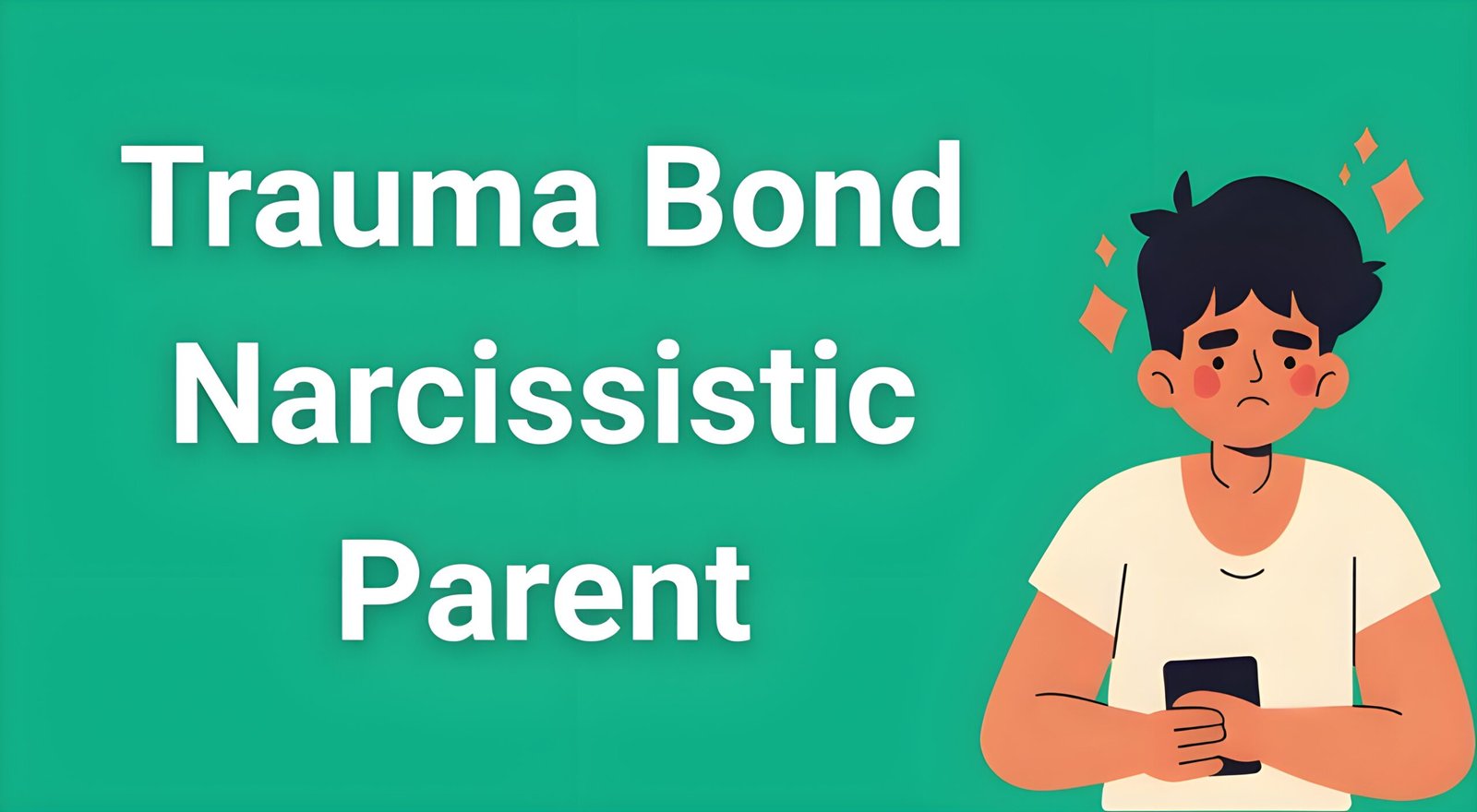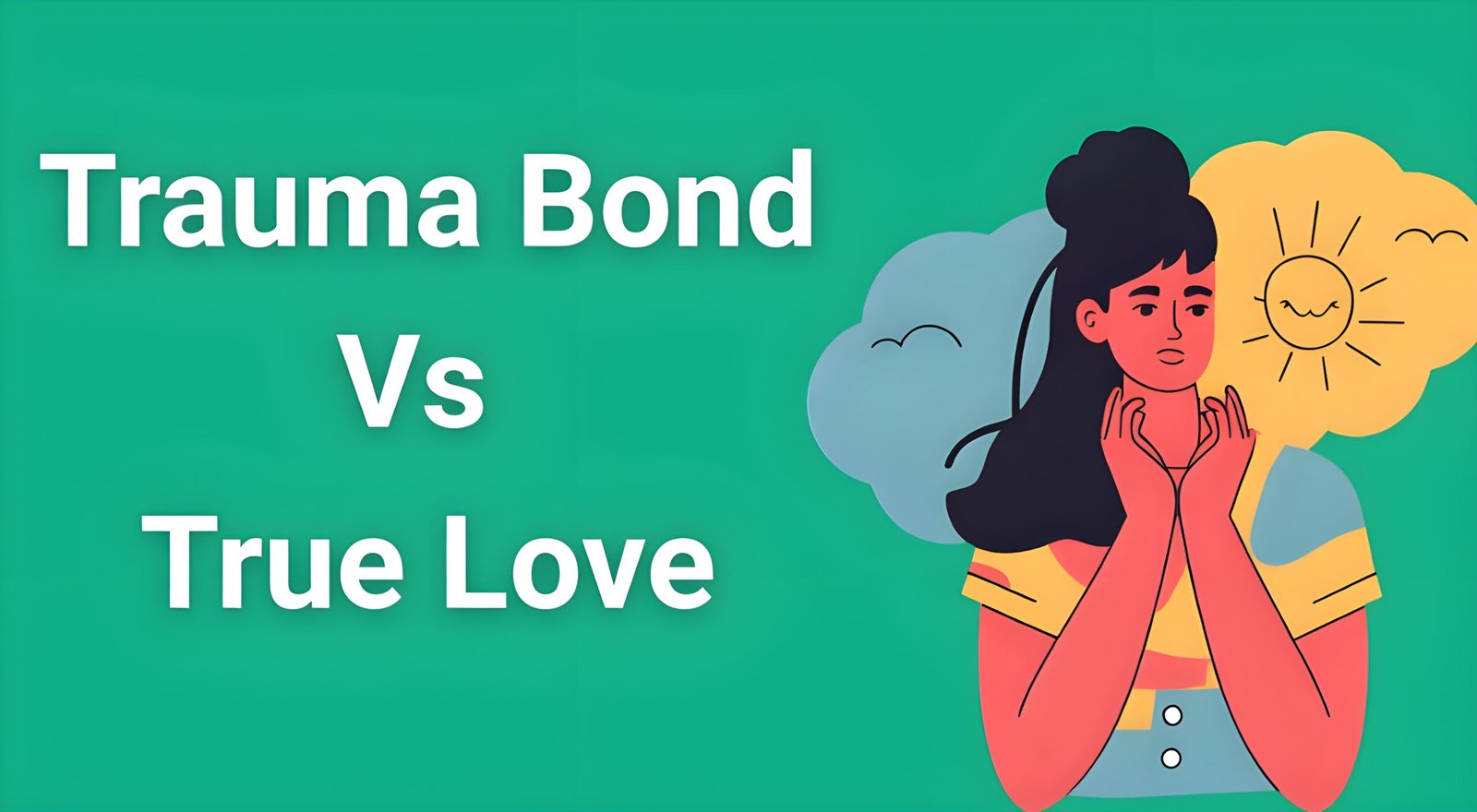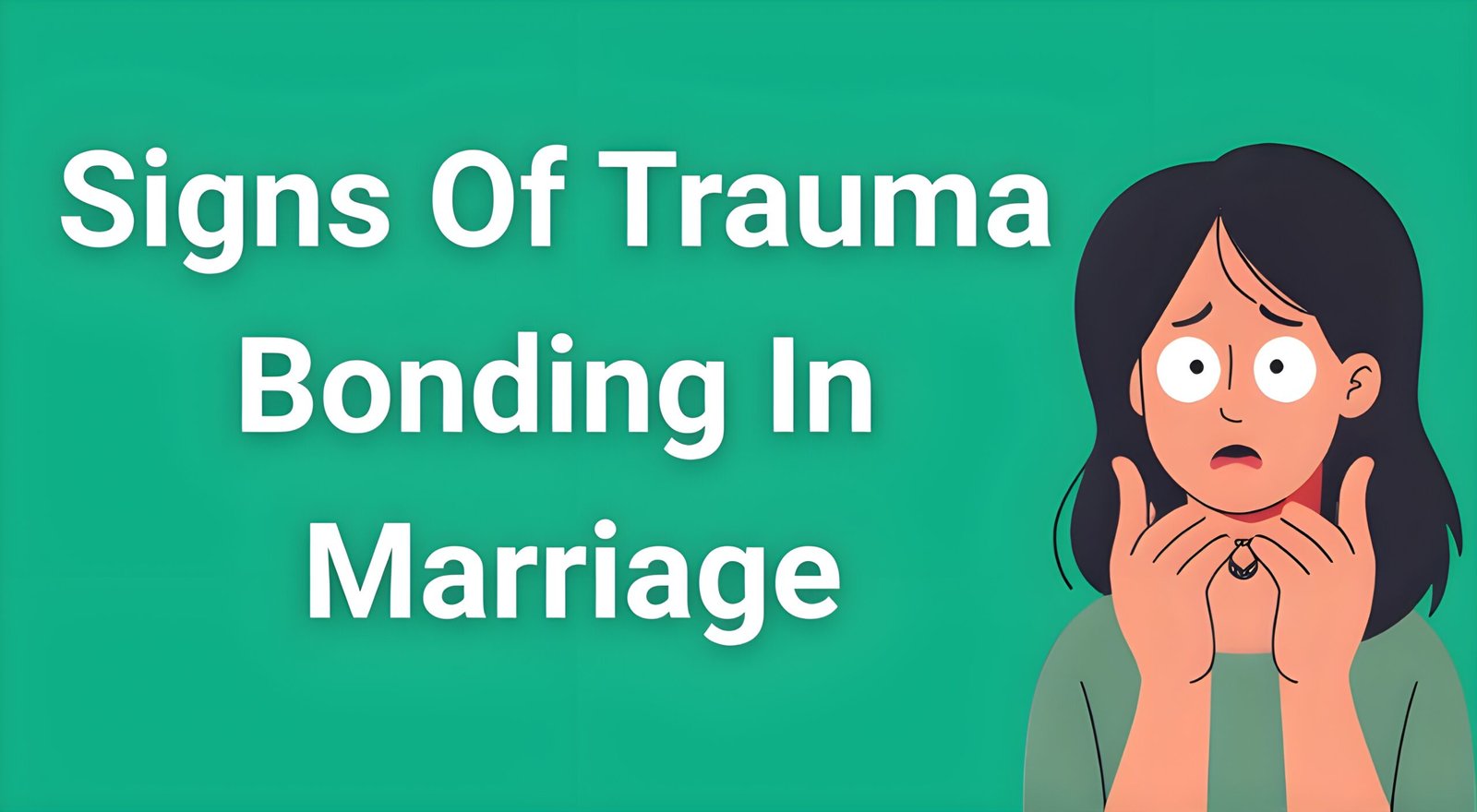The gaming world has ventured into psychological territory that many find both fascinating and disturbing. Recent trauma bond romantically abusive Sims 4 mod releases have sparked conversations about virtual representations of toxic relationship dynamics. But what happens when digital simulations mirror real-world psychological abuse patterns with startling accuracy?
- What Exactly Are Trauma Bond Sims 4 Mods?
- The Psychology Behind Real Trauma Bonding
- How Gaming Mods Accidentally Reveal Abuse Patterns
- The Dangerous Appeal of Simulated Abuse
- Recognizing Real Trauma Bonding in Your Life
- Breaking Free from Real Trauma Bonds
- The Educational Value vs. Potential Harm Debate
- Moving from Virtual Understanding to Real Healing
- Resources for Breaking Real Trauma Bonds
- Frequently Asked Questions
- Conclusion
These mods aren’t just entertainment—they’re inadvertent psychological case studies that reveal how trauma bonding actually functions in abusive relationships. While players explore these dynamics through their virtual characters, the underlying mechanics expose the same psychological traps that keep real abuse survivors feeling unable to leave harmful relationships.
What Exactly Are Trauma Bond Sims 4 Mods?
The trauma bond romantically abusive Sims 4 mod phenomenon includes several custom modifications that simulate psychological abuse dynamics. The most notable mod introduces a “Dangerous” trait that allows abusive Sims to engage in love bombing behaviors, create emotional dependency, and establish trauma bonds with their romantic partners.
These mods typically feature:
Love Bombing Mechanics: Abusive Sims shower their targets with excessive affection, gifts, and attention during the initial relationship phase. This mirrors the idealization stage of real abusive relationships where victims often describe feeling like they’ve found their “soulmate.”
Intermittent Reinforcement Systems: The mods alternate between cruel behaviors and kindness, creating the same psychological addiction patterns found in real trauma bonding. This unpredictable reward system actually strengthens the emotional attachment.
Emotional Dependency Traits: Victim Sims develop traits like “Emotionally Dependent” and “Trauma Bond,” which affect their autonomy and decision-making abilities. They become increasingly reliant on their abuser for emotional regulation.
Breaking Point Mechanisms: The mods include systems where victim Sims can eventually recognize the abuse and attempt to break free, though this process is intentionally difficult and often requires multiple attempts.
The Psychology Behind Real Trauma Bonding
Understanding why these virtual dynamics feel so realistic requires examining the actual psychology of trauma bonding. Trauma bonding is a psychological response where abuse victims develop strong emotional attachments to their abusers through cycles of punishment and reward.
Psychologists Donald Dutton and Susan Painter first identified trauma bonding as consisting of two key elements: power imbalances and intermittent reinforcement. The abuser maintains control while occasionally providing relief, care, or affection. This creates a psychological addiction similar to gambling, where the unpredictable nature of rewards makes the attachment stronger, not weaker.
The neurochemistry involved is profound. During abuse, stress hormones like cortisol flood the system. When the abuser shows kindness, the brain releases dopamine and oxytocin—the same chemicals involved in healthy bonding and addiction. This biological response happens regardless of conscious thoughts about the relationship.
Stockholm Syndrome represents an extreme form of trauma bonding, but the psychological mechanisms operate on a spectrum. Even subtle forms of emotional manipulation can create these attachments over time.
How Gaming Mods Accidentally Reveal Abuse Patterns
What makes the trauma bond Sims 4 mod particularly revealing is how accurately it replicates real psychological abuse cycles without necessarily intending to. The mod creators have essentially programmed the same behavioral patterns that occur in actual abusive relationships.
The Love Bombing Phase: Real abusers begin relationships with intense attention, gifts, and declarations of unique love. They make their targets feel special and chosen. The Sims mod replicates this through gameplay mechanics where abusive characters shower their targets with romantic interactions and gifts.
Gradual Control Establishment: In reality, abusers slowly introduce controlling behaviors once their target is emotionally invested. They might start monitoring phone calls, isolating their partner from friends, or making subtle criticisms. The gaming mod simulates this through gradually unlocking more controlling and cruel interaction options.
The Trauma Bond Formation: Real trauma bonds form when victims begin defending their abusers, making excuses for harmful behavior, or feeling responsible for their abuser’s actions. The mod creates this through trait changes that make victim Sims more likely to forgive abuse and less likely to leave.
Intermittent Reinforcement: Perhaps most accurately, the mods recreate the unpredictable cycle of cruelty and kindness that makes trauma bonds so powerful. Abusive Sims sometimes act lovingly, just often enough to maintain hope in their victims.
The Dangerous Appeal of Simulated Abuse
While these mods serve an unintended educational purpose, they also raise concerning questions about the appeal of simulated psychological abuse. Some players are drawn to these mods out of curiosity about toxic dynamics, while others may be processing their own experiences with abuse.
However, there’s a risk that engaging with these simulations could normalize abusive behaviors or provide a blueprint for manipulation tactics. The mods present psychological abuse in a simplified, game-like format that might underestimate the real trauma and complexity involved in actual abusive relationships.
For players who have experienced real trauma bonding, these mods might be triggering or could inadvertently reinforce unhealthy relationship patterns. The gaming context can make serious psychological abuse seem less harmful or more acceptable than it actually is.
Recognizing Real Trauma Bonding in Your Life
If playing with or learning about these trauma bond romantically abusive Sims 4 mod dynamics has raised questions about your own relationships, it’s important to understand how trauma bonding manifests in real life.
Early Warning Signs:
- Feeling like you’ve found your “perfect match” very quickly
- Intense, overwhelming romantic attention in the beginning
- Your partner discouraging relationships with friends or family
- Feeling like you’re “walking on eggshells” around them
- Making excuses for their harmful behavior to others
Established Trauma Bond Indicators:
- Defending your partner despite clear evidence of mistreatment
- Feeling like you can’t live without them, even when they hurt you
- Believing you’re responsible for their negative emotions or actions
- Experiencing physical withdrawal symptoms when apart from them
- Finding yourself unable to leave despite wanting to
The Cycle Recognition: Real trauma bonding follows predictable patterns. The tension building phase creates anxiety and hypervigilance. The incident phase involves actual abuse—emotional, physical, or psychological. The reconciliation phase brings apologies, promises to change, and renewed affection. Finally, the calm phase creates false hope that the relationship has improved.
This cycle can span days, weeks, or months. Each repetition strengthens the psychological bond, making it progressively harder to leave. Understanding this pattern is crucial for recognizing when you might be experiencing trauma bonding rather than genuine love.
Breaking Free from Real Trauma Bonds
Unlike in gaming simulations where breaking trauma bonds might involve simple menu selections, escaping real psychological abuse requires comprehensive strategies and often professional support. The neurological addiction created by trauma bonding makes willpower alone insufficient for most people.
Professional Assessment and Support: If you recognize trauma bonding patterns in your relationship, seeking professional help is crucial. Trained specialists can provide objective analysis of your situation and develop personalized safety and recovery plans.
Understanding the Neurological Component: Recognizing that trauma bonding involves brain chemistry helps reduce self-blame. You’re not weak for staying—you’re dealing with a neurological addiction that requires specific strategies to overcome.
Building External Support Systems: Trauma bonding often involves isolation from friends and family. Reconnecting with trusted people outside the relationship provides perspective and practical support for leaving safely.
Safety Planning: Leaving abusive relationships can be dangerous. Professional counselors can help create detailed safety plans that consider your specific circumstances, including housing, finances, and potential retaliation from your abuser.
The Educational Value vs. Potential Harm Debate
The existence of trauma bond Sims 4 mods raises important questions about using gaming to explore serious psychological topics. On one hand, these simulations can help people recognize abuse patterns they might not otherwise understand. They make abstract psychological concepts concrete and observable.
Educational benefits include:
- Making psychological abuse patterns visible and understandable
- Helping players recognize similar dynamics in their own lives
- Creating opportunities for discussion about toxic relationships
- Providing a safe space to explore these concepts without real-world consequences
However, potential risks include:
- Normalizing or romanticizing abusive behaviors
- Oversimplifying complex psychological trauma
- Providing manipulation tactics to potential abusers
- Triggering trauma responses in abuse survivors
The key lies in approaching these simulations with proper context and education. Understanding that real trauma bonding involves genuine suffering, long-term psychological damage, and serious safety concerns helps maintain appropriate perspective.
Moving from Virtual Understanding to Real Healing
For those who recognize trauma bonding patterns—whether through gaming simulations or real-life experience—the path forward involves education, support, and professional guidance. Understanding the psychology behind these attachments is the first step toward freedom.
Immediate Steps if You Recognize Trauma Bonding:
- Document patterns of behavior in your relationship
- Reach out to trusted friends or family members
- Contact domestic violence resources for guidance
- Consider professional counseling specialized in trauma and abuse
- Develop a safety plan before making any major changes
Long-term Recovery Focus: Recovery from trauma bonding involves rebuilding your sense of self, learning to trust your perceptions again, and developing healthy relationship patterns. This process takes time and professional support, but healing is entirely possible.
Understanding attachment styles, building emotional regulation skills, and processing the trauma underlying these bonds are all crucial components of recovery. Many survivors find that specialized workbooks and structured recovery programs provide the daily support needed to break free from these powerful psychological attachments.
Resources for Breaking Real Trauma Bonds
If exploring trauma bonding through gaming has helped you recognize similar patterns in your real relationships, professional resources can provide the specialized support needed for recovery. Understanding trauma bonding is just the first step—breaking free requires structured approaches designed specifically for these powerful psychological attachments.
Specialized trauma bond recovery programs use neuroscience-based techniques to address the addiction-like qualities of these relationships. These approaches recognize that willpower alone isn’t sufficient when dealing with brain chemistry changes caused by intermittent reinforcement patterns.
Professional analysis of your specific situation can help clarify whether you’re experiencing trauma bonding, codependency, or other unhealthy relationship dynamics. Expert assessment considers your unique circumstances, relationship history, and current safety concerns to develop personalized recovery strategies.
Frequently Asked Questions
Q: Are trauma bond Sims 4 mods harmful to play with?
A: These mods can be educational but potentially triggering for abuse survivors. They risk normalizing abusive behaviors and should be approached with awareness of their limitations in representing real psychological trauma.
Q: Can playing these mods help me understand my own relationship?
A: While the mods can illustrate abuse patterns, real trauma bonding is more complex and serious than gaming simulations suggest. Professional assessment is recommended if you recognize concerning patterns.
Q: How long does trauma bonding take to develop in real life?
A: Trauma bonds can form within days to weeks, depending on the intensity of the abuse cycle and the victim’s vulnerability factors. Unlike game mechanics, real trauma bonding doesn’t follow predictable timelines.
Q: Is trauma bonding the same as Stockholm Syndrome?
A: Stockholm Syndrome is a specific type of trauma bonding that occurs in hostage situations. Trauma bonding is a broader psychological response that can occur in various abusive relationships.
Q: Can you break trauma bonds on your own?
A: While some people successfully break trauma bonds independently, the neurological addiction component makes professional support highly beneficial. The success rate is significantly higher with specialized help.
Q: Do these mods accurately represent real abuse dynamics?
A: The mods capture some basic patterns but significantly oversimplify the complexity, danger, and psychological impact of real abuse. They shouldn’t be considered accurate representations of actual abusive relationships.
Conclusion
The trauma bond romantically abusive Sims 4 mod phenomenon reveals both the power of gaming to simulate complex psychological concepts and the importance of understanding these dynamics in real life. While these virtual explorations can provide insight into abuse patterns, they pale in comparison to the complexity and severity of actual trauma bonding.
If engaging with these concepts through gaming has raised questions about your own relationships, remember that real trauma bonding involves serious psychological and safety concerns that require professional attention. The neurological addiction created by intermittent reinforcement patterns makes these bonds extremely difficult to break without proper support and strategies.
Understanding trauma bonding—whether through gaming simulations or educational resources—is valuable only when it leads to recognition, help-seeking, and ultimately, healing. Virtual abuse dynamics serve as a starting point for understanding, but breaking free from real trauma bonds requires genuine support, professional guidance, and comprehensive recovery approaches designed specifically for these powerful psychological attachments.
The path from recognition to recovery is challenging but entirely possible. Thousands of survivors have successfully broken trauma bonds and rebuilt their lives with appropriate support and evidence-based healing strategies.

